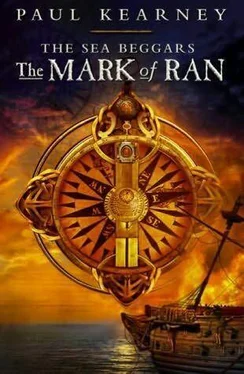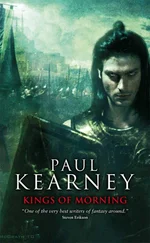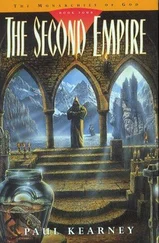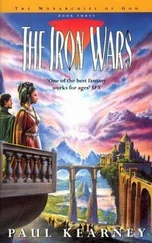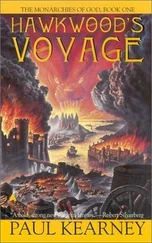Paul Kearney - The Mark of Ran
Здесь есть возможность читать онлайн «Paul Kearney - The Mark of Ran» весь текст электронной книги совершенно бесплатно (целиком полную версию без сокращений). В некоторых случаях можно слушать аудио, скачать через торрент в формате fb2 и присутствует краткое содержание. Жанр: Фэнтези, на английском языке. Описание произведения, (предисловие) а так же отзывы посетителей доступны на портале библиотеки ЛибКат.
- Название:The Mark of Ran
- Автор:
- Жанр:
- Год:неизвестен
- ISBN:нет данных
- Рейтинг книги:3 / 5. Голосов: 1
-
Избранное:Добавить в избранное
- Отзывы:
-
Ваша оценка:
- 60
- 1
- 2
- 3
- 4
- 5
The Mark of Ran: краткое содержание, описание и аннотация
Предлагаем к чтению аннотацию, описание, краткое содержание или предисловие (зависит от того, что написал сам автор книги «The Mark of Ran»). Если вы не нашли необходимую информацию о книге — напишите в комментариях, мы постараемся отыскать её.
The Mark of Ran — читать онлайн бесплатно полную книгу (весь текст) целиком
Ниже представлен текст книги, разбитый по страницам. Система сохранения места последней прочитанной страницы, позволяет с удобством читать онлайн бесплатно книгу «The Mark of Ran», без необходимости каждый раз заново искать на чём Вы остановились. Поставьте закладку, и сможете в любой момент перейти на страницу, на которой закончили чтение.
Интервал:
Закладка:
Rol rounded a long promontory, wooded with tall green pine and fir and girded with gray rock. A square-rigged caravel went by, beating into the wind, her crew singing in the shrouds. Thanks to his grandfather’s endless stories Rol knew that the gilded porpoise at her stem meant she was out of Corso, to the southwest. The Corsoans, short and dark as seals, were consummate deepwater sailors, and their pilots were in high demand over all the Twelve Seas. He felt a momentary thrill of excitement. All those tall tales, they had been an education, in a way. Perhaps Grandfather had been preparing him for a day such as this.
Ascari, capital of Gascar. It shone bright in the sunlight at the foot of its long bay. White houses with red clay roofs, a haze of smoke hanging over them, and in the harbor at the city’s foot half a hundred vessels of all ports and builds, cradled by a whitewashed mole of squared stone that arced protectively into the glittering waters of the bay. He had made very good time, and Grandfather’s sailing directions, brief though they had been, were still accurate.
The hills surrounding the port killed the wind, and the water in the bay was calm as glass. Rol broke out Gannet ’s heavy sweeps, and for a sweating couple of hours labored first at one and then the other, as if propelling an oversized rowing boat. A swift six-man cutter put out into the bay and hailed him as he worked. The helmsman was grinning through a salt-gray beard.
“Hot work, even on a cold day, young ’un! We’ll tow you in, if you have a mind, take you right snug up to the wharves. What say you?”
Rol wiped his forehead, panting. “How much?”
The men in the cutter looked at one another. The helmsman’s grin widened. “No more than you can afford, with a pretty face like that. Give me, Aradas, a roll in the hold and we’ll scull you to port in style.”
Rol bared his teeth, and spat over the side. “Too dear for my liking. I’d sooner sweat.”
Aradas laughed. “Suit yourself, my proud one!” and the cutter was sculled rapidly away with its crew hooting and calling derisively.
It was late evening by the time Rol had finally made Gannet fast fore and aft to stone bollards set in the harbor mole. By that time he was spent, his back aching and his hands blistered-except where the strange scar had somehow protected one palm. The first stars were out, and his breath was a pale fog before his face. He sat on the mole by Gannet for a while, feeling the cold stiffen his sore muscles and start to work a chill within his sweat-soaked clothing. At the base of the mole Ascari was a maze of yellow lights, and he could hear raucous laughter, shouts, clattering cart-wheels. A burst of song from the open door of a tavern. At his feet the waters of the bay plopped and hissed and Gannet floated, creaking. It was the ebb of the tide.
Rol had never felt so alone.
A lantern-bearing shape loomed up out of the night, the fragrance of whitherb wound about it. A bearded man with a short pipe jutting from his mouth, and eyes black as bubbles of pitch in the lantern-light. He took his pipe out of his mouth and spat on the whitened stone of the mole. “When’d you get in, younker?”
“Just now. Just this moment.”
“Berthing fee to be paid. Five minims a day, unless you’re kin to one of the fisherfolk. What’s the name?”
Rol rubbed his face. “I’m a friend of Michal Psellos. Would you know where to find him?”
The man’s pipe paused on its way back to the reeking hole in his beard. He glared. “Ten minims a day for such as you, then, and make it quick or I’ll have the Harbor Watch impound that cockleshell o’ yourn.”
Rol stared at him, smelling the dislike. A few short days ago he might have been cowed, but not now. He stood up, hand on the dirk in his belt. “You’ll have your money and more if you tell me where Psellos is to be found.”
He was eyed narrowly. “You’re not of Gascar. There’s a tang of Dennifrey in your accent, and something else maybe. What would you be wanting with a creature like that? Do you know Psellos at all?”
“I was to look him up here.”
The man seemed to study him closely. “You didn’t sail from Dennifrey in that thing, did you?”
Rol shrugged, too tired to elaborate.
“You want my advice, then set sail for home again. You don’t want to go mixing with folk such as that. You’re only a boy-I see now. Ascari’s no place for a youngster alone.”
“I’ve nowhere else to go.”
The man hesitated, and then: “Go to the top of the town, up the hill. There’s a gray tower there in the eaves of the wood. Psellos is there some of the time at least.”
“What about the ten minims?”
“Pay me tomorrow, if you see tomorrow. If you don’t, I’ll take your boat.”
Rol was too weary to argue further. He nodded wordlessly. The man gave him a last stare, spat over the side of the mole, and walked away shaking his head.
The life of Ascari, even in winter, seemed to take place on the streets. Everywhere along the narrow cobbled ways, braziers burned outside open shopfronts, and men sat drinking by them. Once a drunkard lunged for Rol, and he whipped out his dirk, eyes blazing. The man’s companions reeled him back in, laughing and bowing mockingly. Women called to him from upper windows, blew him kisses, promised him all manner of carnal services. Urchins pawed at his waist, eyes bright in wasted faces. He thrust them aside, loathing and pitying them at the same time. He passed fevered knots of copulation in wet alleyways, and once a group of feather-capped men bending over a body sprawled on the cobbles. Music eddied out into the night, cooking smells brought the water into his salt-tainted mouth. He was famished and parched, but knew better than to enter any of the dank taverns he passed. He walked his slow, obstructed way up the hill upon which Ascari sprawled and felt that he was being assaulted by a whole new range of experience, a different world that his mind struggled to take in. This beetling hive of humanity was at once fascinating and repulsive. He wondered how men could live like this-piled atop one another-without going mad.
Farther up the hill the town became less congested, the houses larger and better made. Trees were planted in stately avenues and banners flapped atop the spires of tall towers. The streets became wider, and Rol began to breathe more easily, though with his travel-worn clothes he was more remarked by the better-dressed strollers who passed him by. When he paused and looked back he was able to see the lights of the port strung out down the hillside and along the shore to the northwest and southeast. He realized that the hill and harbor made up only a portion of the entire town; it extended in haphazard fashion for thousands of yards along the coast with no order or design to its layout.
Ascari was unwalled, as were all of the cities of the Seven Isles. They relied on their navies to keep out invaders. Grandfather had said that though the Isles might war amongst themselves from time to time, when an outsider threatened any of the seven he would find himself attacked by all. Not even Bionar had ever felt strong enough to assault the Isles by sea, though Arbionar had been a colony of hers once upon a time.
The last building before the wooded summits of the nearer hills was a stone tower, although the term did not do justice to its gaunt massiveness. Unlike the rest of the town, it was unpainted and unadorned, constructed of massive courses of dark masonry, and it seemed to be built into the hill itself, with low wings extending back from the cylindrical base of the main structure. Not so much a dwelling as a fortress. A light shone high up in a window, and near the conical roof Rol thought he could make out an open space, a balcony of some kind. There was a huge double door a fathom from its foot, reached by a steep wooden staircase. Set within it, a smaller postern was framed in iron. Clambering up, Rol hammered on the wood of the postern with his fist, not allowing himself time to think or hesitate.
Читать дальшеИнтервал:
Закладка:
Похожие книги на «The Mark of Ran»
Представляем Вашему вниманию похожие книги на «The Mark of Ran» списком для выбора. Мы отобрали схожую по названию и смыслу литературу в надежде предоставить читателям больше вариантов отыскать новые, интересные, ещё непрочитанные произведения.
Обсуждение, отзывы о книге «The Mark of Ran» и просто собственные мнения читателей. Оставьте ваши комментарии, напишите, что Вы думаете о произведении, его смысле или главных героях. Укажите что конкретно понравилось, а что нет, и почему Вы так считаете.
